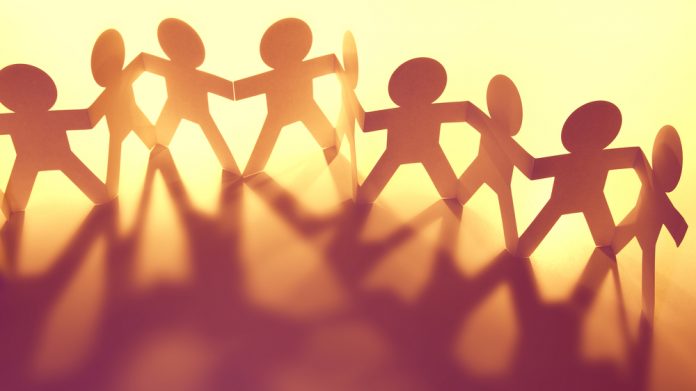GambleAware research has stated that racism and discrimination can stop people from minority communities who are suffering from gambling harm from seeking support.
The gambling support charity has published a study, the Minority Communities & Gambling Harms: Qualitative and Synthesis Report, on the lived experience of gambling and gambling harms among minority communities in Great Britain.
For this research, minority communities were defined as people who identify as a member of an ethnic or religious minority group in Britain or are from a migrant community where English may not be their first language.
GambleAware awarded a grant to Ipsos, ClearView Research and the University of Manchester to conduct research, as 2,999 (1,220 minority and 1,779 white British majority) adults aged 18+ across England, Wales and Scotland completed a survey between May 19 and May 25, 2022.
Further qualitative research was conducted by Ipsos between August 2022 and March 2023, with 25 individuals from minority communities who reported gambling behaviour taking part in an app-based diary-style task.
In addition, two rounds of longitudinal depth interviews with 21 people who self-reported experiencing difficulties with gambling and/or self-reported being affected others of those who were experiencing difficulties with gambling were conducted in October-December 2022, and in May-June 2023.
Building on a Minority Communities & Gambling Harms: Quantitative Report that GambleAware released in March, the charity noted that the latest study “confirmed the role that stigma and discrimination can play not just in driving harms, but also in preventing people accessing help and support”.
The report found that people from minority communities who have any gambling issues are 50 per cent more likely to have experienced racism or discrimination in public, compared to those with no gambling issues.
Those who took part in the qualitative research “described a link between their experiences of discrimination and racism, and susceptibility to gambling harms”, pointing to the “role of racism and discrimination in exacerbating gambling behaviour, including feelings of social exclusion, reduced employment opportunities and heightened risk of mental health issues”.
Zoë Osmond, CEO of GambleAware, commented: “Gambling harms can affect anyone, but they can be more common and more damaging in communities that face social inequality – such as these minority groups. Fortunately, help is out there.
“The National Gambling Support Network offers confidential, tailored support for people from all backgrounds. It also does a lot of community outreach to raise awareness and increase early intervention, so that people from all backgrounds know where to turn and can get help before gambling problems turn into an addiction.”
The report also found that gambling being used as a coping mechanism to deal with life challenges is three times more common among minority communities than among white British people.
Qualitative study participants also identified various barriers to support, including a lack of awareness and trust in support services due to past experiences of racism and discrimination they faced when seeking healthcare, as well as perceptions that they would not be able to choose the type of support they received.
People from minority communities were also less likely to say they would feel comfortable talking to friends and family if they were worried about their gambling, as well as speaking to a gambling support service provider or a healthcare provider.
Some participants also said they felt they and others from minority groups could be disproportionately influenced by gambling marketing and advertising due to a “limited understanding about the risks involved in gambling” which could have made them “more susceptible to the gambling marketing and advertising they saw”.
Wendy Knight, who has lived experience of gambling harm and took part in the study, said: “Looking back, I started gambling compulsively after having issues at work. During that period, I spent a lot of my time and money in casinos as gambling became my way of escaping.
“Also, my parents came to the UK from the West Indies during the Windrush era. Since arrival, our lives have been about struggling for money. I think that because of the lack of opportunities in disadvantaged communities gambling seems like one of the few ways we could ever get big money.
“When I started recovery, I found it isolating as there weren’t any other black people there. When I walked into the recovery room it was full of white men, but I stayed because I wanted to recover. Plus, I am used to being the only minority in the room.
“However, much more needs to be done to make people from minority backgrounds feel comfortable to go to recovery services for help.”
Dr Dharmi Kapadia, Senior Lecturer in Sociology at The University of Manchester, added: “This research study has shown that minoritised people facing difficult, and often traumatic, life circumstances such as financial hardship, racism and other forms of social exclusion are at risk of gambling harms.
“Worryingly, gambling help services are often not seen as trustworthy by minoritised people due to past discriminatory experiences of statutory services. Gambling support services need to work on increasing confidence amongst minoritised groups, including how they organise, advertise and deliver services.”
GambleAware will be opening a new £4.3m funding programme later this month to build on the recommendations from the research, working with organisations in England, Scotland and Wales to “tackle additional burdens of gambling harm experienced by people from minority religious and ethnic communities”.
Anna Hargrave, GambleAware Chief Commissioning Officer, stated: “Our new funding programme is a response to research which demonstrated that both women and people from minority ethnic and religious communities face additional burdens of gambling harm as well as barriers in accessing services which meet their needs.
“Through the fund, we will aim to reduce the inequality of experience of gambling harm for women and people from minority religious and ethnic communities.”









